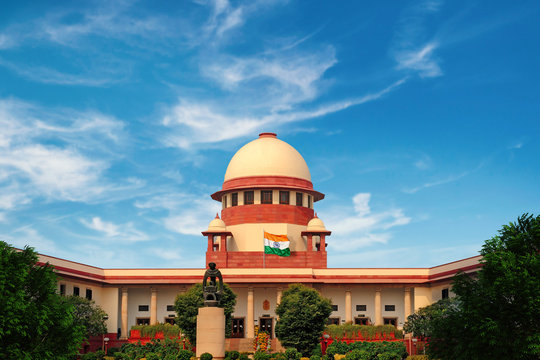
Countering Hate Speech: SC’s Game-Changing Directive
The Supreme Court’s recent directive to the Centre regarding the appointment of nodal officers in every district across states has sparked discussions on curbing hate speech and mob lynching. The court’s move comes in response to a bunch of petitions aimed at addressing the rise of hate speech incidents, particularly in light of recent protests in Haryana and other parts of India. This article delves into the implications of the Supreme Court’s directive and the steps being taken to combat hate speech effectively.
Court’s Concerns and Action: The Supreme Court’s direction stems from its 2018 directive that urged states to appoint nodal officers to combat mob lynching and hate crimes. The recent rise in hate speech incidents has prompted the court to inquire whether states have complied with this directive. The court emphasized the importance of ensuring that each district has a nodal officer, not below the rank of superintendent of police (SP), responsible for preventing mob lynching and crimes fueled by hate.
Strengthening the Mechanism: In light of the current scenario, the Supreme Court aims to strengthen its previous directive. The Ministry of Home Affairs (MHA) has been tasked with collecting information on the appointment of nodal officers across states and submitting a status report within three weeks. The court seeks to enhance the role of nodal officers by requiring them to maintain a case diary of hate speeches. Additionally, the court proposed installing CCTVs at venues where hate speeches are likely to occur and sensitizing police officers about reporting such incidents to nodal officers.
The Way Forward: To ensure effective implementation, the Supreme Court is considering the formulation of guidelines for nodal officers. These guidelines would focus on maintaining records of hate speeches, using technology to monitor such incidents, and aiding districts with a higher frequency of hate speech cases. The court has recognized the need for practical steps to uphold the rule of law and prevent the spread of hate speech that can lead to communal tension and violence.
Challenges and Solutions: However, challenges persist in defining hate speech clearly and promoting political will for implementation. The lack of a universally accepted definition for hate speech poses difficulties in registering and addressing hate speech cases. Experts emphasize the importance of not only having a clear legal framework but also ensuring that the understanding and application of the law are consistent and effective.
In conclusion, the Supreme Court’s initiative to track the appointment of nodal officers to tackle hate speech reflects its commitment to curb the rising incidents of hate-driven crimes. As states and the Ministry of Home Affairs collaborate to reinforce the existing mechanism, the nation inches closer to effectively addressing the menace of hate speech and ensuring a safer and more harmonious society.
